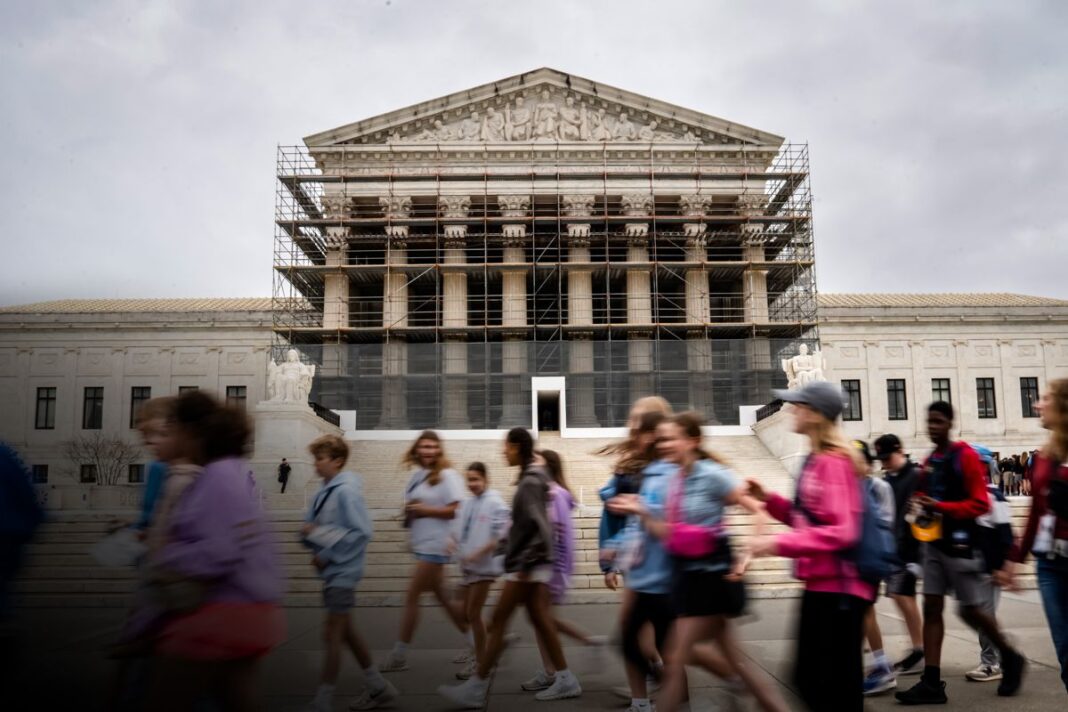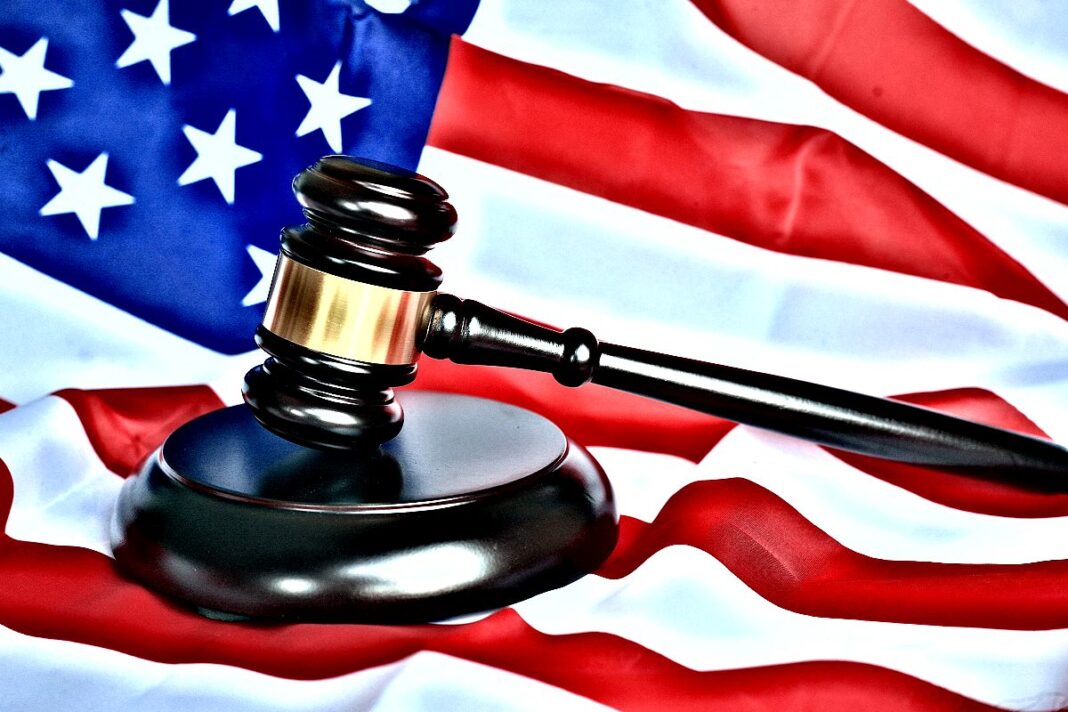The case could affect how judges can block future policies.
The Supreme Court on May 15 heard oral arguments in relation to the Trump administration’s request to lift nationwide injunctions placed on the president’s birthright citizenship order.
The decision could determine how judges can address presidential actions.
During the argument, the justices posed questions about how far lower court judges could go in issuing relief from particular policies.
Solicitor General D. John Sauer told the court that nationwide injunctions exceed judges’ authority under Article 3 of the Constitution.
While members of the Supreme Court have criticized nationwide injunctions in the past, they seemed skeptical that it was appropriate to remove the injunctions in this case.
President Donald Trump’s Executive Order 14160, signed on Jan. 20, states that “the Fourteenth Amendment has never been interpreted to extend citizenship universally to everyone born within the United States.”
The executive order has prompted debate over the meaning of the 14th Amendment’s citizenship clause, which states that “all persons born or naturalized in the United States, and subject to the jurisdiction thereof, are citizens of the United States and of the State wherein they reside.”
Here are some takeaways from the arguments, as well as considerations surrounding the Supreme Court’s ruling.
1. No Final Ruling Expected on Constitutionality
The argument stemmed from an emergency request made by the Trump administration to limit three separate nationwide injunctions blocking the president’s birthright citizenship order.
At such an early stage in the litigation, the justices wrestled more with procedural considerations such as the scope of relief rather than the constitutionality of birthright citizenship for illegal immigrants.
However, judges can still consider the likelihood that each side will succeed with its arguments about the more substantive issues. The issue could also reach the Supreme Court again after further deliberation in lower courts, teeing up an opportunity for the justices to make a more definitive ruling on birthright citizenship.
Sauer could have asked the Supreme Court to delve deeper into the constitutional issues, but he did not. Justice Amy Coney Barrett pressed him on this point and asked why he wanted there to be more consideration by lower courts before the justices took on the issue.
“So this one isn’t clear-cut on the merits?” she asked.
Justice Ketanji Brown Jackson said that if Trump’s order is legally wrong, allowing the administration to continue implementing it would be inconsistent with the rule of law.
“It seems to me that your argument says we get to keep on doing it until everyone who is potentially harmed by it figures out how to file a lawsuit, hire a lawyer, etc.,” she said. “And I don’t understand how that is remotely consistent with the rule of law.”








